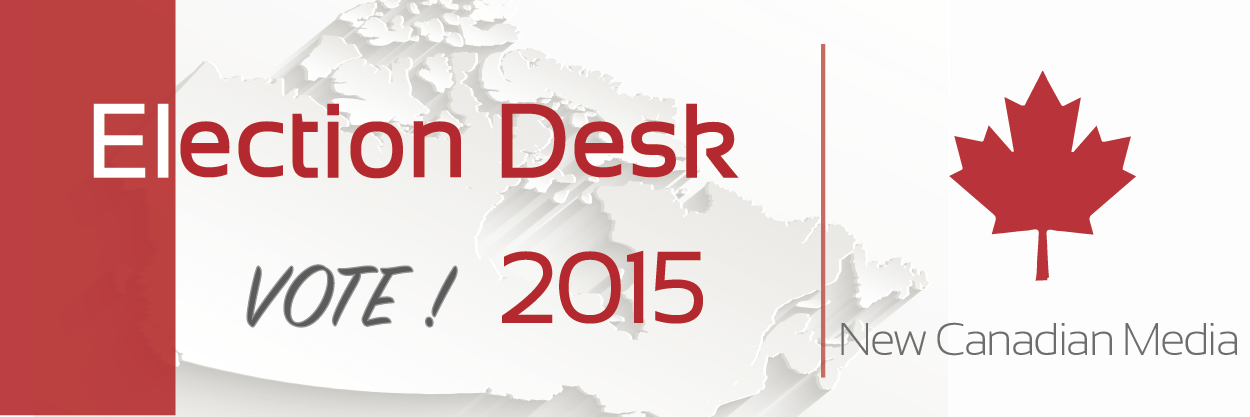During the 2015 election campaign, one issue remained imminent for many Canadians: how will the newly elected government improve the economy? But, a question less pondered, of interest to many immigrant communities is how will the government improve economic inequalities.
One economics professor from British Columbia’s Simon Fraser University recently pointed out which promises made by the major political parties in Canada made would lower inequality.
“Inequality is more about wealth than income,” professor Krishna Pendakur said during a public lecture in Burnaby earlier this month.
Wealth, he said, is money generated from stocks, bonds, etc., and income is based on labour.
Economic platforms
Pendakur said the Conservatives’ plan is vague when it comes to economic inequality – more commonly referred to as the gap between the rich and the poor.
“They promise to grow the economy, to have a bigger pie, then a trickle-down effect,” he explained. “Whatever crumbles from this pie and falls down to the rest of the 99 per cent, that’s it.”
Pendakur said the Conservatives’ plan is vague when it comes to economic inequality.
Pendakur noted though that some trickle-down effect did happen with previous policies of low tax rates, low revenue and low public spending. “There was high skilled blue-collared incomes in Alberta while the party lasted.”
Looking to the Liberals and New Democrats, Pendakur said both parties promise to increase guaranteed income supplement, which is a good thing. The income supplement provides a monthly non-taxable benefit to Old Age Security recipients who have a low income and are living in Canada.
To get the supplement, the recipients must be legal residents in Canada and receiving the old age pension.
Addressing national inequality
Pendakur pointed out which policies each party promised would likely be most effective in addressing national inequality.
For the New Democratic Party (NDP), he said the two major ones are national subsidized childcare and national universal drug coverage. “Both are long term commitments and [Tom] Mulcair will need more than one election to see it through,” he commented.
“[F]or some, even if they’ve seen a doctor and the doctor has written the prescription, sometimes people can’t afford the treatment at the pharmacy. It’s the biggest cost to someone’s health.”
Pendakur said political parties are careful about what they can claim because there are certain jurisdictions which federal governments don’t have a lot of control over.
Health care is decided at the provincial level, so that is why the NDP chose pharmaceuticals, he said.
“It’s good because, for some, even if they’ve seen a doctor and the doctor has written the prescription, sometimes people can’t afford the treatment at the pharmacy. It’s the biggest cost to someone’s health.”
Minimal wage is also a provincial jurisdiction, Pendakur explained, which is why the NDP promised a minimum wage of $15 per hour for federal workers. “100,000 workers will be affected.”
Turning to the Liberals, he drew attention to the party’s promise to increase child benefits with lower implicit tax rates on them.
The party also said it would raise tax rates on personal income over $200,000 by four per cent and lower income tax rates for the middle class from 22 per cent to 20.5 per cent.
Privileging particular demographics
During the Q-and-A session, an audience member asked Pendakur what he thought about the Conservative party’s income-splitting tax plan.
“Income splitting is awful,” Pendakur replied.
[Pendakur] said [income splitting] values two-parent, two-income families and ignores every other demographic in the country.
He said the plan values two-parent, two-income families and ignores every other demographic in the country. “Why is this particular demographic worth more than others?”
University of Fraser Valley student Anoop Tatlay agreed with him.
“I couldn’t pinpoint what it was about the [income-splitting tax] proposal that bothered me, but once he said it, it clicked,” stated Tatlay, who is a single mother. “I’d thought the same thing.”
Pendakur presented complex information in an engaging manner, said Tatlay. The newfound knowledge she gained motivated her to look more closely at the federal budget and public spending and try to understand it better.
As a Canadian citizen, the 37-year-old resident of Mission, B.C. said she plans to vote on Oct. 19.
Deanna Cheng is a freelance journalist who has been published in various publications such as Vancouver Courier and Asian Pacific Post. She often covers culture, intersectionality and Vancouver.





